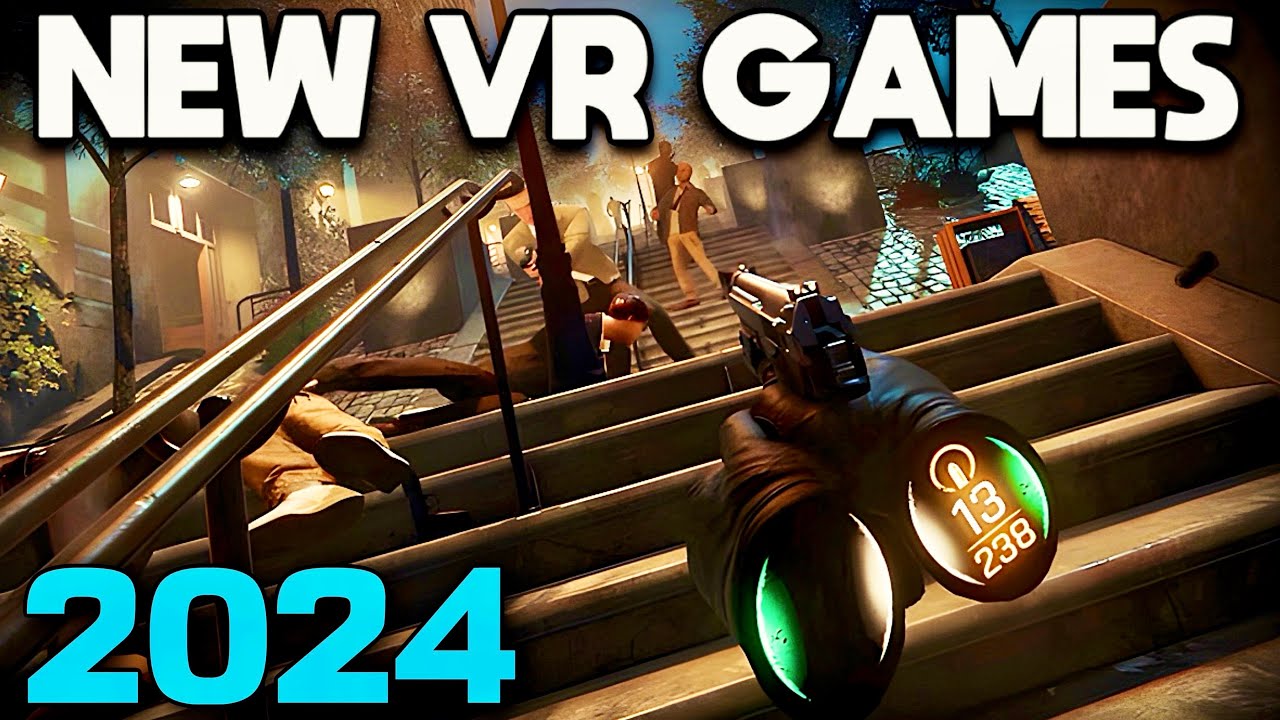Will VR Action Games Dominate in 2024?
As technology advances at a rapid pace, the realm of virtual reality (VR) continues to expand, especially within the gaming industry. With significant improvements in VR hardware and software, the potential for immersive experiences has never been greater. As we look towards 2024, the question arises: will VR action games dominate the market? This article explores the current trends, advancements, and challenges in the VR landscape, while considering the factors that could propel VR action games to the forefront of the gaming world. Are we on the brink of a VR revolution, or will traditional gaming formats continue to hold their ground?
Will VR Action Games Dominate in 2024?
The question of whether VR action games will dominate in 2024 is multifaceted, involving advances in technology, market trends, consumer behavior, and the gaming industry’s business strategies. Below are five key aspects with detailed insights:
Technological Advancements in VR Hardware
The evolution of VR hardware plays a crucial role in the potential domination of VR action games. With companies like Meta, Sony, and HTC spearheading innovations, the resolution and field of view of VR headsets have substantially improved. Moreover, the comfort and battery life of these devices are now optimized for longer gaming sessions. In 2024, we can expect even more lightweight and user-friendly designs, which could eliminate previous barriers to widespread adoption.
Game Development and Content Diversity
The success of VR action games hinges on the quality and variety of available content. Developers are increasingly investing in high-fidelity graphics, immersive storytelling, and realistic physics to create captivating experiences. Major studios and indie developers alike are focusing on VR-exclusive titles that leverage the unique capabilities of VR technology, moving beyond simple ports of traditional games. This growth in content diversity ensures that players will have a wide range of engaging options to choose from.
Market Trends and Consumer Demand
Current trends indicate a surge in consumer interest and investment in VR gaming. Market studies show an increase in VR headset sales and a growing number of active user bases. As the cost of VR technology becomes more accessible, it is likely that more consumers will be willing to invest in the necessary hardware. Additionally, the rise in eSports and streaming has introduced VR to a broader audience, further bolstering its market presence.
Competitive Landscape in the Gaming Industry
The gaming industry is highly competitive, with companies continually seeking to gain an edge. As VR technology becomes more mainstream, traditional gaming platforms such as consoles and PCs may see a shift in market share. Big players like Microsoft and Sony are already incorporating VR capabilities into their ecosystems, signaling a move towards embracing VR as a substantial segment of their gaming portfolios. These strategic shifts could lead to VR action games gaining dominance in 2024.
Social and Psychological Factors
The social and psychological aspects of VR gaming cannot be overlooked. VR provides a level of immersion and presence unparalleled by traditional gaming experiences, which can enhance satisfaction and emotional engagement. Gamers often seek novelty and thrills, and VR action games deliver on both fronts. Moreover, the potential for multiplayer and social VR experiences adds another layer of attraction, as players can connect and interact within virtual environments in ways not possible before.
| Factor | Contribution to VR Dominance |
|---|---|
| Technological Advancements | Improved hardware, enhanced comfort, better resolutions, and longer battery life make VR more accessible and enjoyable. |
| Content Diversity | High-fidelity graphics, immersive storytelling, and VR-exclusive titles attract a wider audience. |
| Market Trends | Increasing consumer interest, investment, and reduced costs facilitate wider adoption of VR technology. |
| Competitive Landscape | Major gaming companies incorporating VR into their ecosystems could lead to a shift in market dynamics. |
| Psychological Factors | Enhanced immersion, emotional engagement, and novel experiences make VR action games highly appealing. |
These aspects provide a comprehensive view of the factors influencing whether VR action games will dominate in 2024. The combined effects of hardware advancements, diverse and engaging content, market dynamics, industry competition, and psychological appeal strongly suggest a significant impact on the future of gaming.
FAQs
What makes VR action games appealing to players?
VR action games provide an immersive experience that traditional games cannot match. By placing players directly in the game world, VR allows for a heightened sense of realism and engagement. The ability to look around freely, use physical movements to control the game, and experience a 360-degree environment adds layers of intensity and excitement. Also, VR action games often feature innovative gameplay mechanics that make the experience feel fresh and unique compared to conventional gaming.
Are there any technological advancements expected in 2024 that could boost VR action games?
Yes, several technological advancements are anticipated in 2024 that could significantly boost VR action games. For instance, improvements in hardware, such as more lightweight and comfortable headsets, will make extended gaming sessions more feasible. Enhanced graphics and processing power will lead to more visually stunning and complex game worlds. Additionally, advancements in haptic feedback and motion tracking will further blur the line between the virtual and real worlds, providing a more immersive and authentic gaming experience.
What challenges do VR action games face in becoming mainstream by 2024?
Despite their potential, VR action games face several challenges in becoming mainstream. One major issue is the cost; high-quality VR systems and compatible hardware can be prohibitively expensive for many consumers. There are also comfort and health concerns, such as motion sickness and physical fatigue, that developers need to address. Furthermore, the current limited content and game library for VR can be a drawback, as players look for a wide variety of quality games to justify their investment in the technology.
Could VR action games change the landscape of the gaming industry by 2024?
VR action games have the potential to significantly alter the gaming industry landscape by 2024. As more players and developers embrace VR, we could see a shift in focus from traditional gaming platforms to more immersive VR experiences. This shift could lead to a new era of game design, where developers prioritize interactivity, immersion, and physical engagement. Additionally, the social aspect of VR gaming, with multiplayer and cooperative modes, could bring about a more connected and interactive gaming community. If these trends continue, VR action games could very well dominate the gaming industry by 2024.




























Post Comment